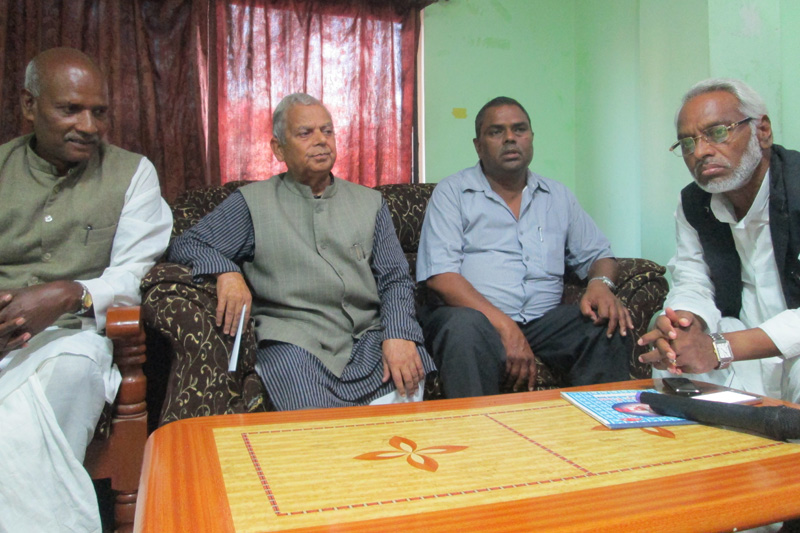UDMF rejects political mechanism; says it will now resort to agitation once again
Kathmandu, February 19
The United Democratic Madhesi Front has rejected the political mechanism formed yesterday under Deputy Prime Minister and Minister of Foreign Affairs Kamal Thapa to revise provincial boundaries.
The UDMF issued a press release saying the newly formed mechanism would not be able to address the demands of the agitating parties, so it would not accept the mechanism.
The UDMF termed the unilateral action of the government forming the mechanism as a dictatorial step which could adversely affect the ongoing negotiations between the two sides.
Chair of Federal Socialist Forum-Nepal Upendra Yadav told THT that formation of the mechanism was meaningless as it lacked the consent of the agitating forces.
He said the government had formed the mechanism a day before Prime Minister KP Sharma Oli embarked on his visit to India just to create an illusion in the minds of Indian leaders that the Government of Nepal was trying to address the Madhes movement.
“Had the constitution been re-written, it would have been the best thing. The government did not accept any of the demands that the UDMF put forth yesterday in the talks held between the two task forces,” he said, adding that formation of the mechanism without the consent of the agitating UDMF was meaningless.
“We are preparing for agitation. After a few days we will launch a fresh agitation,” he added.
Co-chair of Sadbhawana Party Laxman Lal Karna also said formation of the mechanism was meaningless as it lacked the consent of key stakeholders Madhesis and Janajatis.
“The major parties did not agree with us on the terms of reference for the mechanism, but when the government formed the mechanism, it did not even use the word Tarai Madhes that they had already agreed to in the talks held between the two task forces,” Karna said, adding that the government had not stated in any document that it would accept the reports of the erstwhile SRC and thematic committee of the first Constituent Assembly while revising provincial boundaries.
“The government formed the mechanism just to show to India that it is trying to solve the Madhes problem,” Karna said.
Coordinator of Tarai Madhes National Campaign Jay Prakash Prasad Gupta said the government had formed the mechanism unilaterally with the intent of portraying the UDMF as an obstructionist force in India.
“Now the government can tell Indian leaders that the UDMF is against any negotiated settlement,” he added.
Gupta said the political mechanism formed unilaterally would not give any solution to the country.
“The UDMF has abandoned issues of proportional representation and representation on the basis of population. The only key demand the UDMF is still raising is the question of provincial boundaries.
As the government has formed the mechanism unilaterally to address this question, it is clear that none of the key demands of the Madhes movement will be addressed,” he added.
Human rights lawyer Dipendra Jha said the government made a mistake by unilaterally forming the mechanism. “No committee is formed without a ToR.
Now that a political mechanism has been formed, the question will arise as to who will prepare and endorse the ToR.” Jha said, “How will Thapa, who failed to win the confidence of the UDMF as chief of the government talks team, succeed this time?”
Jha said the key to the resolution of boundary question lay in the hands of the chiefs of the major parties and it was not clear whether the chiefs of these parties would join the Thapa-led mechanism.






